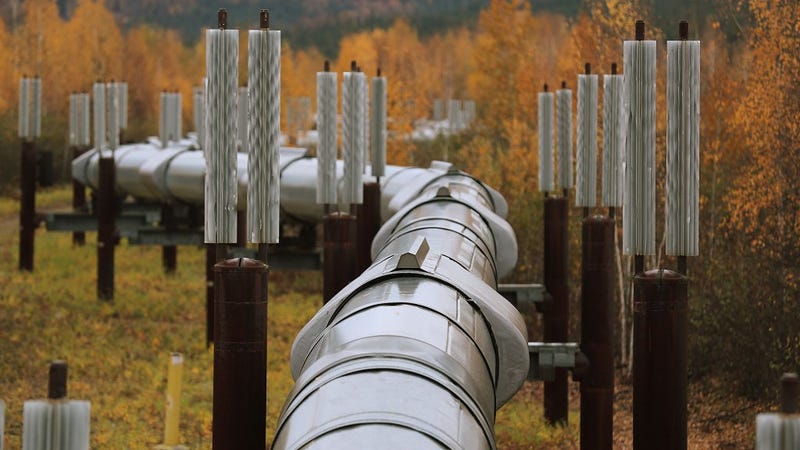
The Biden administration announced on Monday that they will reverse a Trump administration plan that opened up 82% of the National Petroleum Reserve in Alaska, and shrink the amount of land that is allowed to be drilled.
The Bureau of Land Management put out a news release about their project to "guide the management" of the Alaskan reserve, after they announced back in January that they would review the 2020 Integrated Activity Plan (IAP) that was established by the Trump administration.
Now, the reserve will follow after the 2013 IAP from the Obama administration, which allowed for only 52% of the land to be drilled, according to CNBC.
"Today’s decision ensures the NPR-A will be managed consistent with the 2013 IAP, while including certain more protective lease stipulations and operating procedures for threatened and endangered species from the 2020 IAP/EIS, confirmed through consultation with the U.S. Fish and Wildlife Service and the National Marine Fisheries Service," the Bureau of Land Management said.
According to data reviewed by E&E News, the Bureau of Land Management has recently slowed down their approvals to drill oil and gas throughout the country. They only approved 95 permits for oil and natural gas on federal lands in January.
It's a major change from the number of permits they were approving in 2021, when the Biden administration allowed more permits than the Trump administration did in its first year in office.
In April of 2021, the Bureau of Land Management signed off on 643 permits.
The decision to reverse the Trump administration's plan comes after the Interior Department announced last week that it would "resume selling leases for new oil and gas drilling on public lands," according to The New York Times.
Although, it would increase federal royalties on the companies that they are forced to pay in order to drill on the public land. The Interior Department added that there will be an auction for the right to drill throughout "145,000 acres of public lands in nine states."
The Biden administration hopes the move will help slow down increasing gas prices in the country following the Russian invasion of Ukraine, which has greatly affected oil and gas prices around the world.
Following the Bureau of Land Management's decision to shrink the land allowed for drilling, federal agencies will now also have to analyze the amount of greenhouse gases that would be potentially emitted throughout any proposed project, according to the White House Council on Environmental Quality, per The New York Times.
Local communities will now have a larger role in the approval process by seeing how the agencies' projects would affect their infrastructure, and new highways or bridges.
"Patching these holes in the environmental review process will help projects get built faster, be more resilient, and provide greater benefits to people who live nearby," Brenda Mallory, chairwoman of the White House Council on Environmental Quality, said in a statement.


